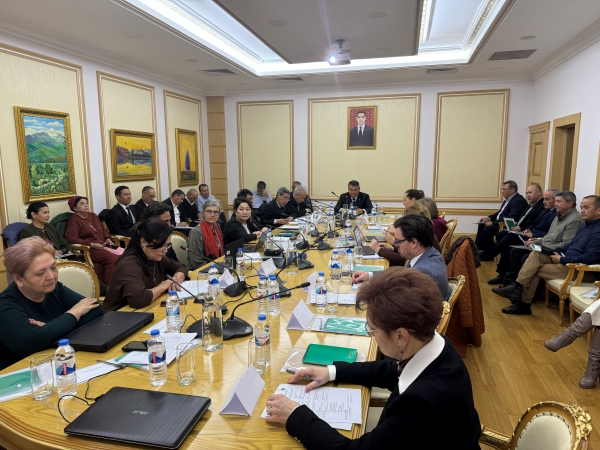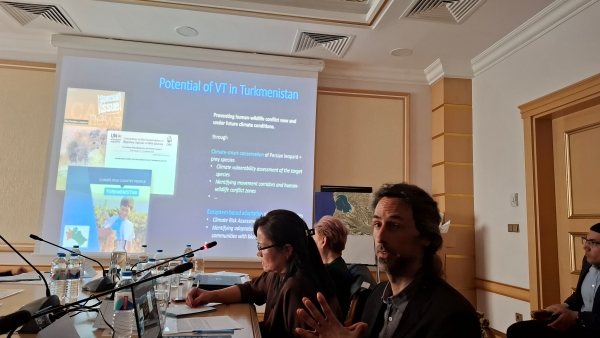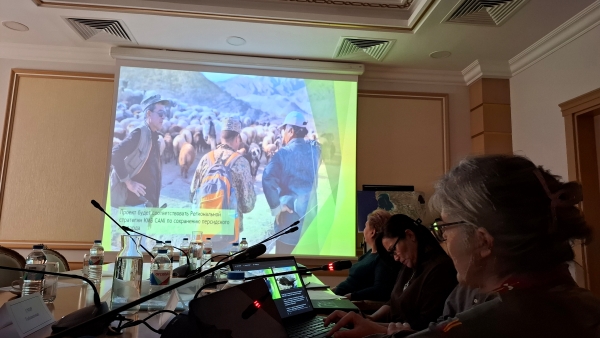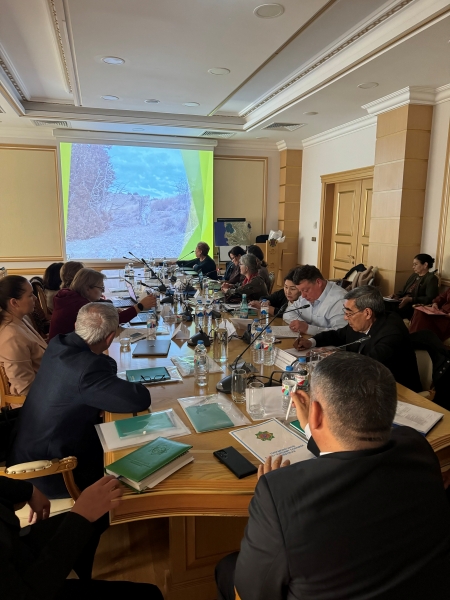Karryeva Sh.B., Head of the Conservation X Lab project
On January 27, 2025, the Hydrometeorological Service of the Ministry of Environmental Protection of Turkmenistan hosted a consultation meeting with international experts from UNEP, who are in Turkmenistan to explore the possibilities of applying the “Vanishing Treasures” approach in Turkmenistan and its applicability to the Persian leopard.
The consultation meeting was organized by the Ministry of Environmental Protection of Turkmenistan in cooperation with UNEP and the Conservation X Lab project. Attended by representatives from embassies, international organizations, government agencies, environmental protection projects, academia, and public organizations, the meeting provided a platform for discussion and knowledge sharing.
Martin Hoffman, an expert from UNEP, presented an overview of the “Vanishing Treasures” project.
Following this, J. Saparmuradov, Scientific Secretary of the National Institute of Deserts, Flora and Fauna under the Ministry of Agriculture of Turkmenistan, presented a report on the status of State Protected Natural reserves and biodiversity in Turkmenistan.
Tanya Rosen, IUCN International Wildcat Expert and coordinator of the Conservation X Labs project, made a presentation “On ongoing conservation measures for the Persian leopard in Turkmenistan”.
A report by G. Nurmukhammedova, an expert of the Global Water Partnership “On the impact of climate change on Turkmenistan’s water resources” was also heard.
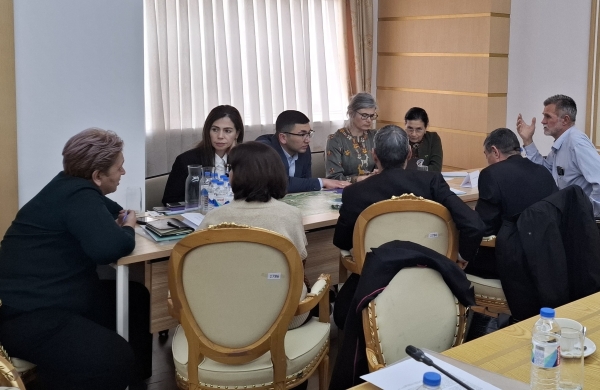 Subsequently, participants engaged in discussions within three working groups, where the meeting participants discussed the threats of climate change to wildlife and local communities; possible environmental measures that support the sustainability of communities and wildlife in the face of climate change; and stakeholders who will be involved in the future project.
Subsequently, participants engaged in discussions within three working groups, where the meeting participants discussed the threats of climate change to wildlife and local communities; possible environmental measures that support the sustainability of communities and wildlife in the face of climate change; and stakeholders who will be involved in the future project.
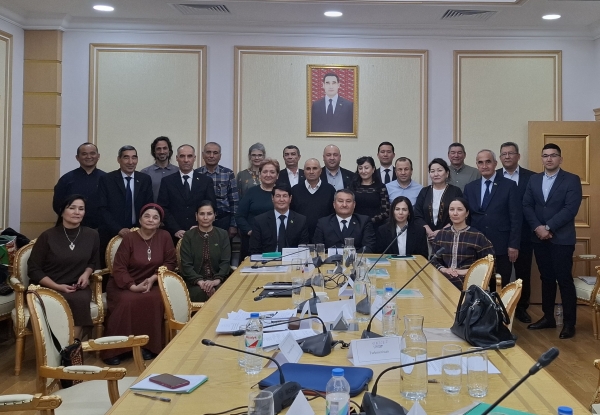 Global climate change significantly impacts Central Asian ecosystems, landscapes, and communities. Small-scale pastoralists and farmers are particularly vulnerable, facing challenges in adapting to changing ecosystem services, such as disrupted freshwater storage. Climate change, alongside water extraction and habitat transformation, weakens ecosystem resilience, endangering both wildlife and human populations. Reduced availability of food, water, and suitable habitats increases human-wildlife interactions, potentially leading to conflicts that impact livelihoods.
Global climate change significantly impacts Central Asian ecosystems, landscapes, and communities. Small-scale pastoralists and farmers are particularly vulnerable, facing challenges in adapting to changing ecosystem services, such as disrupted freshwater storage. Climate change, alongside water extraction and habitat transformation, weakens ecosystem resilience, endangering both wildlife and human populations. Reduced availability of food, water, and suitable habitats increases human-wildlife interactions, potentially leading to conflicts that impact livelihoods.
Despite growing evidence of species vulnerability to climate change, wildlife adaptation to climate change remains a gap. Therefore, the UNEP Vanishing Treasures program supports climate change adaptation of vulnerable mountain species such as the royal Bengal tiger in the Hindu Kush Himalayas (Bhutan), the snow leopard in Central Asia (Kyrgyzstan and Tajikistan), the mountain gorilla in the Virunga region (Rwanda and Uganda), and the spectacled bear and jaguar in the tropical Andes (Colombia and Ecuador).
The Vanishing Treasures Program is funded by the Grand Duchy of Luxembourg and aims to maximize synergies between climate change adaptation and biodiversity conservation by enhancing the adaptive capacity of mountain ecosystems while preserving their associated ecosystem services, protecting flagship mountain species that are key to ecosystem functioning, and promoting alternative livelihoods for local communities.
In Turkmenistan, ecosystem-based approaches to wildlife adaptation and conservation, taking into account climatic features, can effectively address key issues related to climate change, biodiversity, and sustainable resource management. Such approaches can provide numerous benefits for wildlife and improve the livelihoods of local communities.
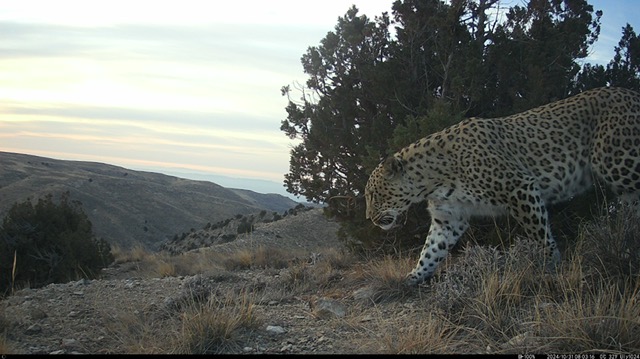 Mountain and desert ecosystems are among the most vulnerable ecosystems to climate change. As our planet continues to heat up, unique plants and animals struggle to survive in ever-shrinking and changing mountain habitats. In addition, species such as the Persian leopard and its habitat are under threat due to climate change, which will exacerbate habitat degradation and fragmentation.
Mountain and desert ecosystems are among the most vulnerable ecosystems to climate change. As our planet continues to heat up, unique plants and animals struggle to survive in ever-shrinking and changing mountain habitats. In addition, species such as the Persian leopard and its habitat are under threat due to climate change, which will exacerbate habitat degradation and fragmentation.
Local communities living in close proximity to wildlife and dependent on livestock face greater difficulties caused by longer dry seasons and less water. As a result, local communities and wildlife are increasingly facing conflicts over natural resources, as well as space to live.
Global climate change significantly impacts key sectors of Turkmenistan’s economy, including agriculture, water management, healthcare, ecosystems (flora and fauna), forestry, and soil and land resources, and contributes to the occurrence of extreme weather events. This necessitates the urgent implementation of adaptation measures across these sectors.
Given its geographical location, Turkmenistan plays a crucial role in safeguarding global biodiversity and maintaining biosphere functions. The country’s unique biodiversity is shaped by its sharply continental, exceptionally dry climate (characterized by long, hot summers, significant seasonal and diurnal temperature fluctuations, and low precipitation) and its position within the Eurasian continent.
The Persian leopard, a key species for healthy ecosystems in Turkmenistan and the region, may become another important flagship one within the framework of the Vanishing Treasures project, contributing to changes and raising awareness on ecosystem approaches to climate change adaptation.
The confirmation of the presence of leopards in the Kopetdag, Badkhyz and Syunt-Khasardag state nature reserves, as well as in the Balkhan mountain range, Garabogazgol and the Ustyurt plateau indicates that Turkmenistan is part of an important migration corridor of leopards in Central Asia, which in some places may suffer from the impending effects of climate change.
Currently, a feasibility study has been developed and the possibility of opening a new state nature reserve on the Balkhan mountain range is being explored, the creation of which is included in the National Forest Program of Turkmenistan for the period 2020-2025.
Applying the Vanishing Treasures methodology in Turkmenistan will facilitate informed responses to land use challenges and climate risks. This will be achieved by leveraging reliable scientific information to preserve biological diversity and support the livelihoods of the population in accordance with the objectives of international conventions in the field of biodiversity, to which Turkmenistan is a party.
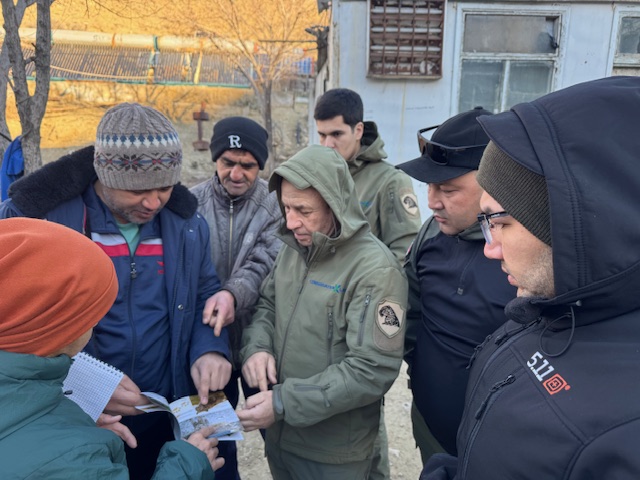
 As part of the visit of UNEP experts to Turkmenistan, from 21 to 25 January, a field trip to the Balkan province (Balkhan Mountain Range) was also conducted jointly with the national Conservation X Lab project team, representatives of the Ministry of Environmental Protection, state reserves and the Mert public organization to explore the possibilities of implementing a future project in Turkmenistan and preparing a complete project proposal.
As part of the visit of UNEP experts to Turkmenistan, from 21 to 25 January, a field trip to the Balkan province (Balkhan Mountain Range) was also conducted jointly with the national Conservation X Lab project team, representatives of the Ministry of Environmental Protection, state reserves and the Mert public organization to explore the possibilities of implementing a future project in Turkmenistan and preparing a complete project proposal.
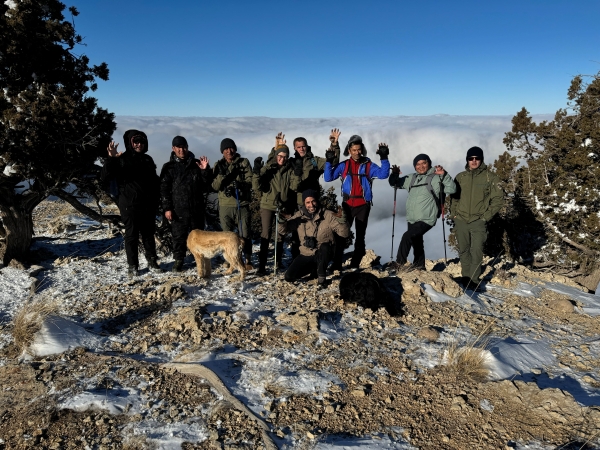 Local meetings were held with employees of the Environmental Protection Department of the Balkan province and local communities, tenants, pasture users. ///nCa, 28 January 2025
Local meetings were held with employees of the Environmental Protection Department of the Balkan province and local communities, tenants, pasture users. ///nCa, 28 January 2025
